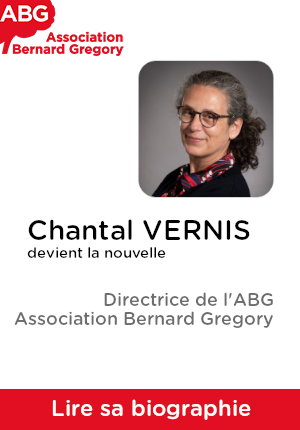Assessment of Geochemical and Ecological quality Trends in LAGoon ecosystems: reconstruction from benthic foraminifera (GET-LAG)
| ABG-130253 | Sujet de Thèse | |
| 31/03/2025 | Contrat doctoral |
- Ecologie, environnement
Description du sujet
Mediterranean lagoons are areas of major ecological and socio-economic importance. However, their ecosystems have been severely degraded by anthropogenic activities over the last century. The measures taken in recent decades to rehabilitate them have often failed to achieve the quality objectives hoped for. Today, it seems important to have new indicators that can be used to reconstruct the evolution of ecological status over time, in order to identify i) the major sources of degradation and ii) the influence of rehabilitation actions taken by managers in recent decades. Using the Berre lagoon as a study laboratory, a lagoon where anthropogenic pressures, ecological degradation and rehabilitation issues overlap, the aim of this thesis is to develop new bioindicators to better constrain these issues and support managers in their rehabilitation actions.
As part of this thesis project, we intend to use benthic foraminifera, bio-indicators of environmental quality, to study the ecological and chemical status of the Berre lagoon, French mediterranean coast. Foraminifera respond to environmental variations with changes in diversity and community composition. In addition, the elemental composition of their shells reflects the conditions under which calcite is formed. The aim of the project will be to explore these two approaches, ecological and geochemical, in order to validate, calibrate and adapt these tools to improve monitoring of the quality of Mediterranean lagoons. We will attempt to answer the following questions: Are foraminifera sensitive enough to record changes in oxygenation (redox elements) and chemical pollution of the environment? Is it possible to define reference conditions by analyzing fossil fauna? Is it possible to identify the anthropogenic pressure responsible for the observed variations in assemblages or geochemical composition?
This thesis project will involve 2 main stages:
1) Calibration of the bio-indication tool by studying the spatial and seasonal distribution of actual foraminiferal communities to understand their response to the various forcing parameters of the environment, both natural and anthropogenic (salinity, organic matter, oxygenation, pollution).
2) Reconstruction of their evolution over time in relation to anthropogenic pressures (pollution, eutrophication, development), including management strategies implemented. This will be achieved by studying sediment cores.
For each step, we will use an integrated approach combining ecology, sediment geochemistry and the study of the geochemical composition of foraminifera. We will use/adapt biotic indices to define EcoQS (Ecological Quality Status) and explore the interest of paleo-EcoQS for defining reference conditions. We will study elemental composition of shells to trace variations in oxygenation (Mn/Ca) or chemical pollution of the environment (Cu/Ca, Pb/Ca...). These data will be compared with geochemical parameters (dissolved oxygen, redox elements, nutrients, etc.).
These results will be the subject of international scientific publications and presentations in international conferences.
Prise de fonction :
Nature du financement
Précisions sur le financement
Présentation établissement et labo d'accueil
Integration of the student into the “Systèmes Littoraux et Marins” research theme, to which the staff of the Angers site belong (13 teacher-researchers, 7 support staff, 3 post-docs and 4 PhD students), offering a dynamic environment with many enriching interactions. The LPG (University of Angers) is internationally recognized for its innovative research on foraminifera.
Intitulé du doctorat
Pays d'obtention du doctorat
Etablissement délivrant le doctorat
Ecole doctorale
Profil du candidat
The candidate must have a Master's degree in Marine Sciences or Micropalaeontology or equivalent. Experience in marine ecology and/or micropalaeontology, preferably with foraminifera, is required. Knowledge of geochemistry would be a plus. Taxonomic determination work under binocular microscope requires meticulousness and rigor. Excellent written and spoken English is required.
Vous avez déjà un compte ?
Nouvel utilisateur ?
Vous souhaitez recevoir nos infolettres ?
Découvrez nos adhérents
 Institut Sup'biotech de Paris
Institut Sup'biotech de Paris  ADEME
ADEME  CASDEN
CASDEN  MabDesign
MabDesign  Généthon
Généthon  Tecknowmetrix
Tecknowmetrix  MabDesign
MabDesign  ONERA - The French Aerospace Lab
ONERA - The French Aerospace Lab  ASNR - Autorité de sûreté nucléaire et de radioprotection - Siège
ASNR - Autorité de sûreté nucléaire et de radioprotection - Siège  Ifremer
Ifremer  Groupe AFNOR - Association française de normalisation
Groupe AFNOR - Association française de normalisation  Aérocentre, Pôle d'excellence régional
Aérocentre, Pôle d'excellence régional  Laboratoire National de Métrologie et d'Essais - LNE
Laboratoire National de Métrologie et d'Essais - LNE  SUEZ
SUEZ  Nokia Bell Labs France
Nokia Bell Labs France  PhDOOC
PhDOOC  TotalEnergies
TotalEnergies  ANRT
ANRT  CESI
CESI
-
EmploiRef. 130080Paris , Ile-de-France , FranceAgence Nationale de la Recherche
Chargé ou chargée de projets scientifiques bioéconomie H/F
Expertises scientifiques :Biochimie
Niveau d’expérience :Confirmé
-
Sujet de ThèseRef. 130176Strasbourg , Grand Est , FranceInstitut Thématique Interdisciplinaire IRMIA++
Schrödinger type asymptotic model for wave propagation
Expertises scientifiques :Mathématiques - Mathématiques







